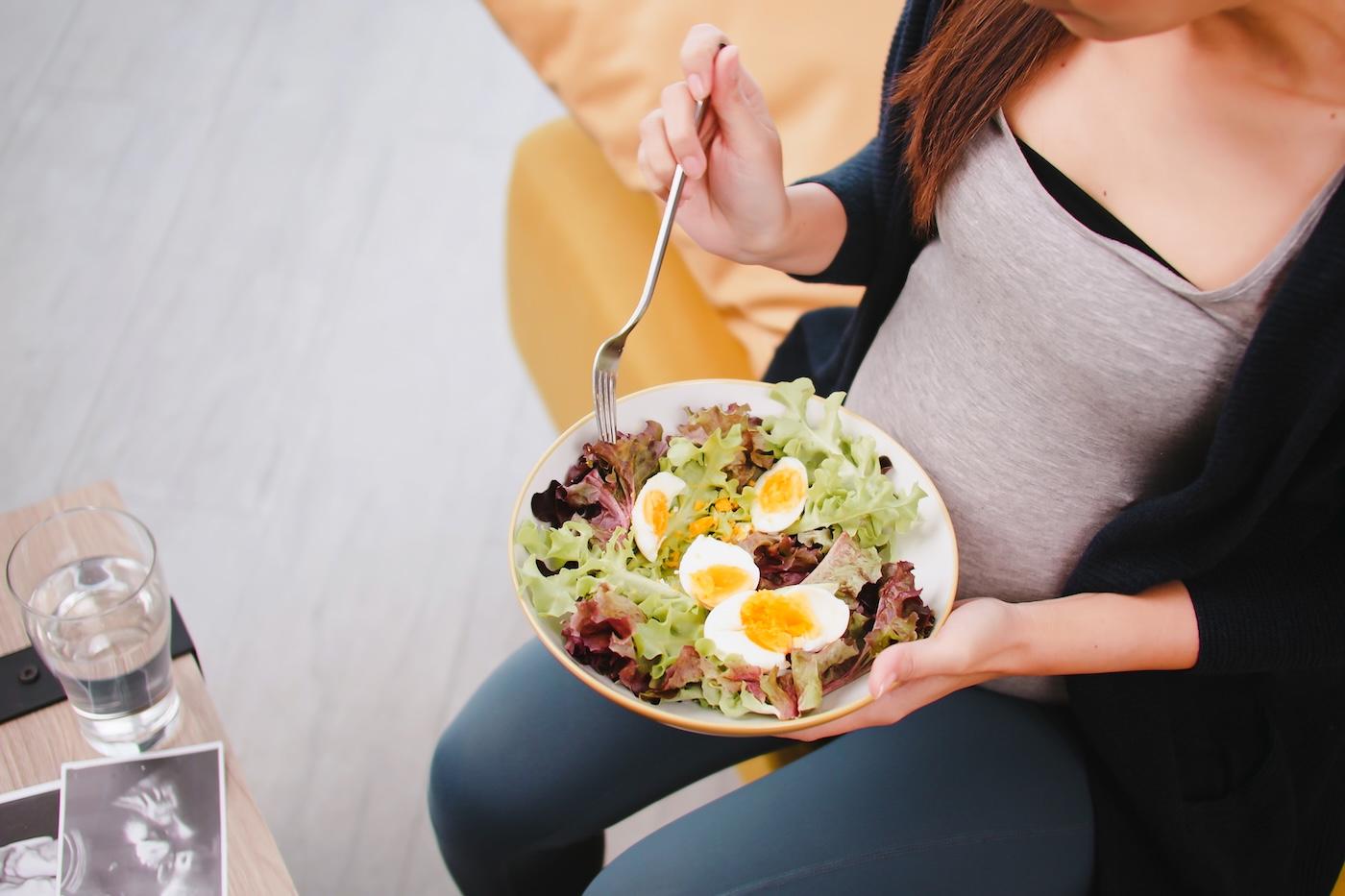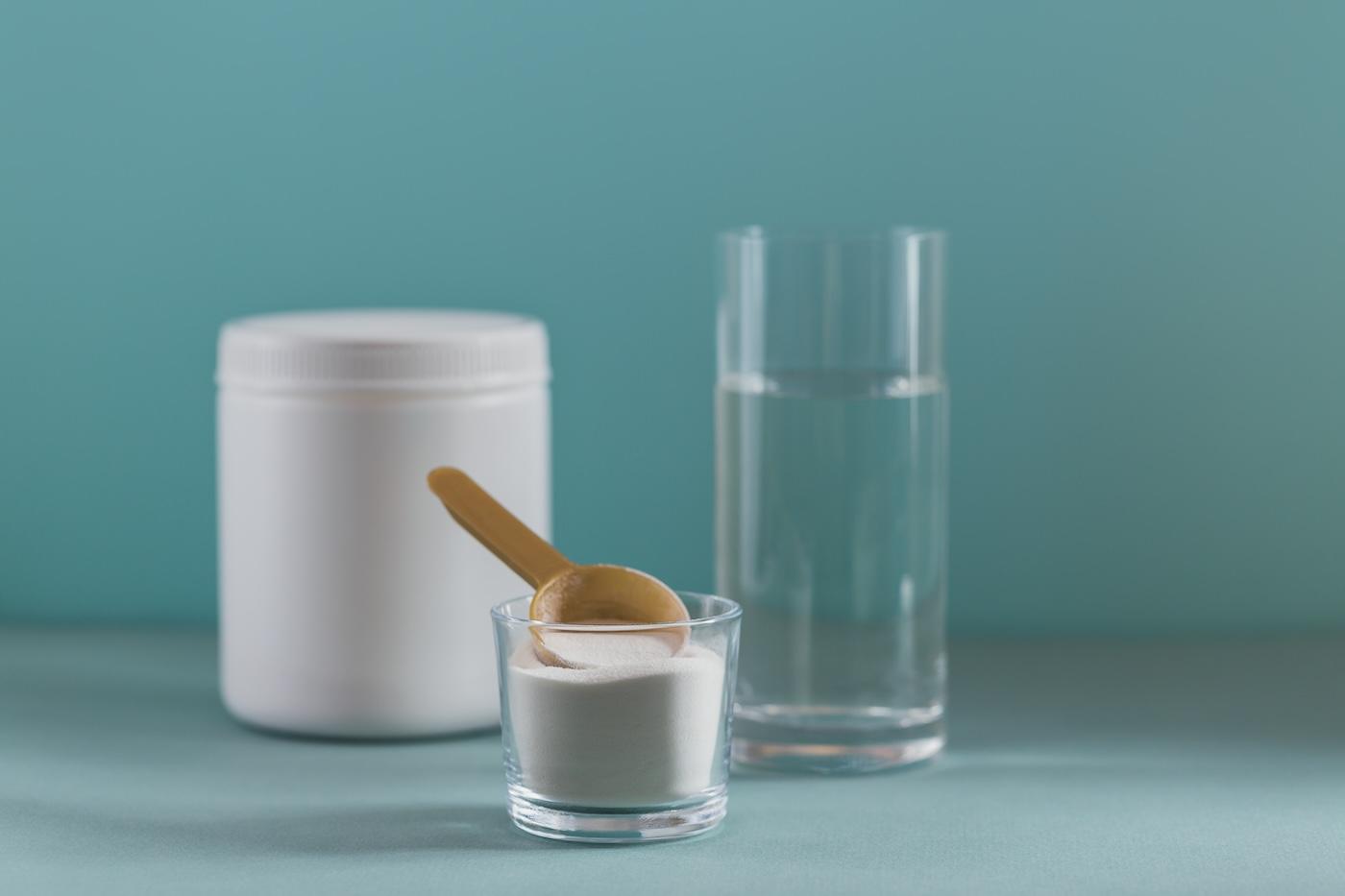PREGNANCY
Is Seaweed Safe to Eat While Pregnant?
Here’s what expectant parents should know.

Written by
Happiest Baby Staff

Poised over a bowl of miso soup or contemplating seaweed snacks to satisfy a crunchy-salty-umami pregnancy craving? Then you're probably wondering if you can eat seaweed during pregnancy. Here's what expectant parents should know!
Is Seaweed Safe to Eat While Pregnant?
Yes—though it depends a bit on the type and amount. Seaweed is a concentrated source of iodine (needed for thyroid function and fetal brain development), but some varieties—especially kelp/kombu—can deliver very high iodine that may push you above safe daily limits in pregnancy and affect maternal or fetal thyroid function.
Quick iodine guide for pregnancy:
- In the U.S. the recommended daily amount is 220 mcg/day (the World Health Organization suggests 250 mcg/day).
- Tolerable Upper Intake Level (UL): 1,100 mcg/day. Going well above this—particularly day after day—raises risk of thyroid dysfunction.
- Seaweed iodine varies enormously—from about 16 to 2,984 mcg per gram in commercial products.
Benefits of Eating Seaweed During Pregnancy
- Iodine: Supports maternal thyroid function and fetal neurodevelopment. (Pregnancy boosts your iodine needs!)
- Other nutrients: Depending on type/product, seaweed may provide fiber, some minerals, and small amounts of omega-3s.
Risks or Considerations
- Excess iodine: High-iodine seaweeds (especially kelp/kombu) and kelp/iodine supplements can exceed safe intakes and trigger maternal or fetal thyroid dysfunction. People with autoimmune thyroid disease may be more sensitive to excess iodine.
- Heavy metals/contaminants: Traces of metals (including inorganic arsenic) have been found in hijiki seaweed. Multiple governments advise avoiding hijiki due to high inorganic arsenic. The Food Agriculture Organization and World Health Organization also highlight seaweed food-safety hazards and the need for guidance.
- Sodium: The saltiness that makes seaweed snacks so tasty can be a problem for folks watching their sodium levels!
How to Safely Eat Seaweed While Pregnant
- Opt for lower-iodine options used in typical portions (think: nori sheets and the modest amounts of wakame you’ll find in soup). Because iodine content varies widely, give the nutrition info a quick read!
- Avoid high-iodine seaweeds and supplements: Skip kelp/kombu as foods and avoid kelp/iodine supplements unless specifically prescribed.
- Avoid hijiki due to inorganic arsenic. Go for alternative seaweeds instead!
- Mind your total iodine. If your prenatal already contains 150 mcg iodine (as many professional groups recommend), it’s easier to exceed the UL with high-iodine seaweeds.
- Buy reputable brands with clear sourcing and, when available, tested iodine values. (Pro tip: Public databases now publish iodine values for many foods!)
- Thyroid condition? Talk to your clinician about iodine intake and seaweed—requirements and sensitivity can differ.
- When to Be Extra Cautious or Avoid
- Known thyroid disease (for example: Graves’or Hashimoto’s) or prior thyroid dysfunction in pregnancy.
- Using iodine-containing prenatals and eating other iodine-rich foods (such as iodized salt, dairy, seafood) where high-iodine seaweed could push you over the recommended limit.
- Unclear product/foraged seaweed sources with unknown iodine/contaminant levels.
Bottom Line
Seaweed can fit into a healthy pregnancy diet, but choose types and portions with iodine in mind. Use nori and small amounts of wakame; avoid kelp/kombu and hijiki; and steer clear of kelp/iodine supplements unless prescribed. If you’ve got any questions, bring your specific products/serving sizes to your clinician or dietitian for a quick iodine “tally!”
More on Eating During Pregnancy:
- Healthy Ways to Satisfy Your Pregnancy Cravings
- Nutrients You Need While Pregnant
- Must-Have Nutrients for Vegetarian Pregnancies
- Is Fish Safe for Pregnancy?
***
REFERENCES
- NIH Office of Dietary Supplements: Iodine Fact Sheet for Health Professionals
- American Thyroid Association: Statement on Risks of Excess Iodine and Kelp Supplements
- American Thyroid Association: Guideline Summary for Pregnancy
- NIH Office of Dietary Supplements: Omega-3 Fatty Acids Fact Sheet for Consumers
- UK Food Standards Agency: Consumers Advised Not to Eat Hijiki Seaweed
- Canadian Food Inspection Agency: Inorganic Arsenic and Hijiki
- Hong Kong Centre for Food Safety: Hijiki and Arsenic
- World Health Organization: Report of the expert meeting on food safety for seaweed: current status and future perspectives
Disclaimer: The information on our site is NOT medical advice for any specific person or condition. It is only meant as general information. If you have any medical questions and concerns about your child or yourself, please contact your health provider.
SHARE THIS ARTICLE
MOST LOVED
Sleepytime Sidekicks












